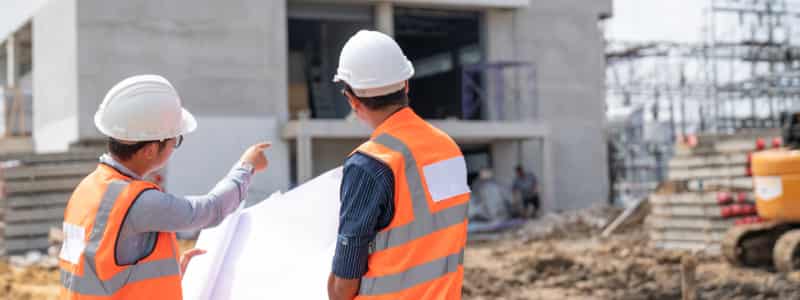Sydney-based lawyer with experience within family and personal injury matters. Formerly Legal Intern at Lawpath.
There are many different types of licences that you’ll need to start up a construction company. These licences vary depending on your local council and the State or Territory you live in. The Australian Business Licence and Information Service (ABLIS) provides a database where you can find the licence relevant to your industry. Ultimately, your company has to comply with WHS, Zoning and Environmental laws.
In this article, we’ll outline what licences you need to operate a construction company.
1. Building licences
You will be required to have a building licence if you want to contract, sub-contract or advertise to carry out any building or trade work. Further, in NSW this licence is only required when the market value and materials required for the job is over $5000.
Gas fitting, plumbing and electrical licences
Plumbing
This licence will include what categories of specialist work you can perform. Thus, under a plumbing licence you can perform:
- Plumbing
- Water plumbing
- Draining
- Gasfitting
- LP gasfitting
- Advanced LP gasfitting work
Electrical licence
Further, this licence provides you with a licence in electrical wiring. Thus, electrical wiring involves:
- Installing
- Supervising
- Repairing
- Altering
- Removing or adding to electrical installations
Heavy vehicle licences
You must ensure that any employees that you hire to drive vehicles have a licence which allows them to operate a heavy vehicle.
Obtaining a white card
Further, you may require a white card if you intend to carry out construction work. Having a white card means that you have completed a certified general construction induction training course.
Water usage licences
There is a certain approval that you need if you intend to work with a bore or well that may use a water supply. Similarly, you need approval if you want to connect a new drain or sewerage pipes to the public drain/sewerage network.
Carrying out high risk work
You will need a licence if you intend to carry out high-risk work. Thus, your employees will need this licence. Some high-risk work involves:
- Scaffolding
- Dogging and rigging
- Crane and hoist operations
- Reach stackers
- Forklift operations
- Pressure equipment operations
Fire management and safety
Further, you need a blasting explosives licence if you intend to use specified explosives, or security sensitive dangerous substances. These explosives may include:
- Dangerous goods of Class 1
- Goods too dangerous to be transported
- Articles/ substances when manufactured, mixed, transported or assembled, will produce an explosive or pyrotechnic effect
Use of land
Further, you will need a licence if you will be using public land. In addition, you need special approval to work on heritage properties.
Building energy efficiency licence
Furthermore, there are certain buildings that are affected by the Commercial Building Disclosure Program. Thus, you cannot sell, lease or sublet a building which is affected by this program without a valid license.
Protecting trees
Further, you will need approval from your local council if you want to do anything that affects local vegetation or trees. This includes:
- Harming
- Cutting
- Ring-Barking
- Topping or Lopping
- Removing
- Injuring or destroying a tree
- Injuring or destroying a bush or piece of vegetation
Disposal of waste
You will need a licence if you want to dispose of wastewater. Also, if you are involved in a business that may produce wastewater, you will need this licence.
There is a licence that is required if you need to remove asbestos. Asbestos is a silicate mineral made up of tiny fibres and produces a dust containing asbestos fibres. When inhaled, it can lead to a range of health issues.
Further, you should be aware of certain legal requirements when handling, storing and using chemicals or dangerous substances. There is a licence for this and it may differ between the States and Territories.
Conclusion
Construction companies need a range of licences to operate legally. Companies that don’t adhere the these requirements may face heavy fines for operating without the right licences. These include building, land, environmental and safety licences. If you need further assistance, it is wise to speak to a Construction Lawyer for further advice.







